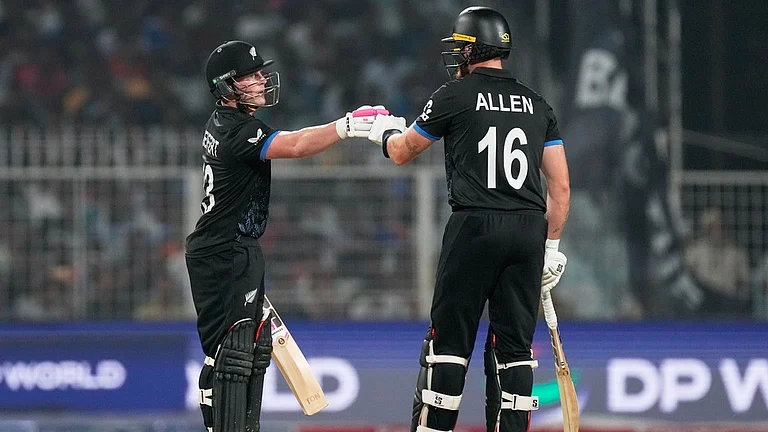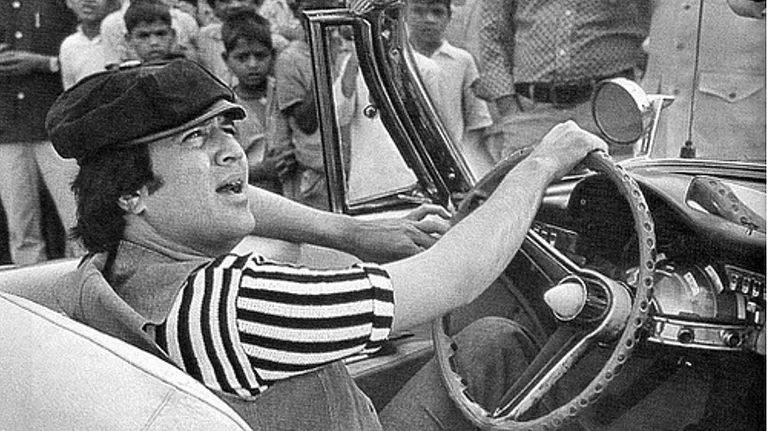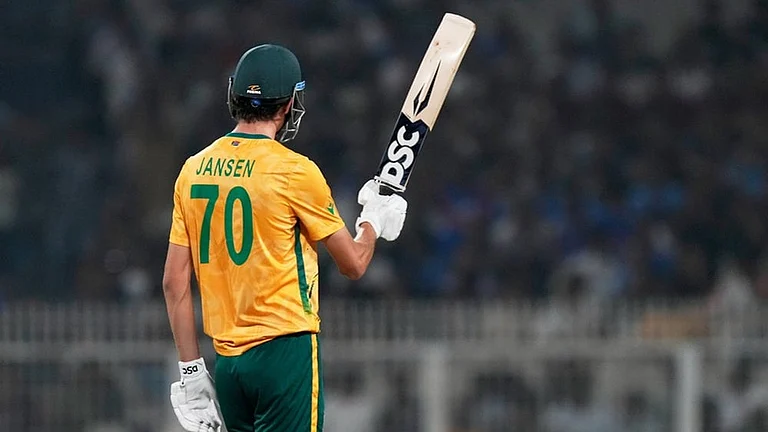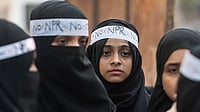When Manisha Ware began her journey as the sarpanch of Kisal in Thane district, Maharashtra, she was confident of changing the landscape of her village. A tribal woman, who had fought all odds to get educated and empowered, Ware had stood up to competition. When she became the village head, she had prioritised her goals and the action plan needed to achieve them. Then she realised that achieving all that she had planned was not easy, for she was a tribal woman for whom many doors still remained closed, even if she was the sarpanch.
“There are so many challenges. Caste plays a very dominant role and cannot be side-stepped even if you are the sarpanch,” she says. “Every decision, even the simple ones, has to be weighed multiple times. The job is more challenging for a woman,” says Ware.
In the past three decades since the reservation quota for women was first implemented in Maharashtra, women leaders in local bodies have become more assertive and emerged as independent decision-makers. According to the data of the Rural Development Ministry of Maharashtra, there are 14,000 women village heads across the state. This reservation quota also saw the emergence of multiple movements in the state that have helped women in local bodies become more effective and impactful leaders. However, challenging the male patriarchy is not easy, says Bhim Raskar, adviser of the Mahila Rajsatta Andolan and director of the Resource and Support Centre for Development, Navi Mumbai.
During his tenure as the chief minister of Maharashtra, Sharad Pawar implemented the 33 per cent quota for women in local bodies and panchayats, which was proposed in the 73rd and the 74th amendments of the Constitution. This proposal was mooted in 1992 and the Pawar-led government implemented it in 1993, becoming the first state in India to do so. In 2011, then chief minister, Prithviraj Chavan, enhanced the quota to 50 per cent, implementing the same in that year. Both Pawar and Chavan represented the Congress party then.
The implementation of the 50 per cent quota saw equal representation for women in civic bodies, including bigger municipal corporations such as Mumbai, Thane, Navi Mumbai, zilla parishads, panchayat samitis and gram panchayats.
“They face the challenge of dealing with the male mindset, particularly the bureaucratic mindset. Often, when the women representatives are Dalits, tribals, minorities and from the other backward communities, things are hidden from them by the gram sevaks, who are the secretaries of the gram panchayats,” says Raskar.
According to Raskar, the all-women gram panchayats are often elected unopposed, making them not a popular option in the villages. However, with the 50 per cent reservation for women being implemented in all the gram panchayats of Maharashtra, there are few all-women gram panchayats. The presence of women in the village body has brought in professionalism to the job, says Raskar. “The offices of the gram panchayats have stopped being daru ka addas (drinking holes). The women in the gram panchayats have started looking after needy people. They address issues such as education, health, water supply and women’s safety,” says Raskar. According to him, an emerging malaise that has engulfed the system is the alternative power centre—the sarpanch pati (husband of the village head). In a majority of the cases, the husbands are the go-to persons and are the decision-makers. “The husband and the political party leader of the village try to intimidate the woman sarpanch to keep her under control.
A potent weapon which is used by the men is character assassination of the woman sarpanch or the women members of the gram panchayats. “If they are doing good work, character assassination ensures that they will stay away from the village politics. In my experience I have seen that a majority of these women do not come back into the gram panchayat system once their term is over. Often, many of them resign before their term is over,” he says.
For many women leaders, the pressure of work, both in their homes and in the gram panchayats, weighs them down. In 2016, a woman sarpanch in a village in Amravati died by suicide as she was unable to cope with the workload at home and keep up with her sarpanch duties. “There should be a handholding policy along with reservation. They cannot go far on their own; a support mechanism is needed,” says Raskar. Despite the increasing visibility of women in the state’s political arena, the rural society is not ready to accept their leadership, making them reluctant politicians.
The Mahila Jansatta Andolan has campaigned hard to get women sarpanchs and women members of the gram panchayats the right to speak at the gram sabhas in the villages. This organisation demanded that the mahila sabha be held before the gram sabha, so that the women in the village can raise their issues with the women representatives in the gram panchayat. This demand was accepted by the Maharashtra government and is now implemented across the state. Often, a no-confidence motion is moved by the men against a woman member of the gram panchayat if she asks inconvenient questions. Again, a campaign by the organisation ensured that the state government brought in the rule of a three-fourth majority to move a no-confidence motion against a woman member of the gram panchayat.
Until 2003, the villagers would never allow a Dalit or an adivasi woman sarpanch to hoist the national flag on Independence Day or on Republic Day. Instead, an upper caste person from the village would hoist the tricolour. In 2003, the then chief minister, Vilasrao Deshmukh, passed in a government resolution that made it mandatory for the national flag to be hoisted by the woman sarpanch, even if she was from the lower caste. After the government initiated police cases against a few, the resolution was followed by the villagers.
Then, there were cases of woman sarpanchs not being allowed to enter the offices of the district collector without identity cards. In 2015, the Mahila Rajsatta Andolan approached the rural development department of the state government and ensured that the women sarpanchs got identity cards and hassle-free entry into the offices of the district collector. The practice still continues. For some months now, the women sarpanchs were not given their sitting allowance, which is an honorarium of Rs 2,500-3,000. “These women do not have their own personal finance and depend on this honorarium for their travel. They do not find it easy to get funds allocated for their villages and have to make multiple rounds to the prominent political figures of the village for the same,” says Raskar.
Every village sarpanch has a Digital Signature Certificate (DSC). This signature is affixed on all transactions done by the village sarpanch. However, in the case of woman sarpanchs, this DSC with her signature is not handed over to her, and is kept with the gram sevak and used by him for transactions, leading to random misuse of the signature of the woman sarpanchs. The Mahila Rajsatta Andolan is actively campaigning and educating the women sarpanchs to not handover their DSC to anyone else.
Women are also denied entry into the membership of the Multiple Cooperative Society, presently existing in the villages. As per the Cooperative Societies Act, the land deed should be in the name of the woman of the household, if they are to be granted membership. Since, land deeds are in the names of the men, the women are denied entry into this Multiple Cooperative Society.
Over the years, numerous women corporators of the Brihanmumbai Municipal Corporation (BMC) have raised gender-specific issues, including menstrual leave for women and the removal of lingerie mannequins from shop windows. Both these issues did not find much support from many women corporators as they were embarrassed to discuss menstruation in BMC meetings. Lingerie mannequins continue to be displayed in shop windows across Mumbai and Maharashtra.
Speaking to Outlook, Paromita Goswami, an activist with the Shramik Elgar who is closely involved in the fight for Adivasi land rights and forest rights, says that women’s reservation will open up to newer dynastic politics from the matriarchal side. “Many factors come into play when women take decisions. Trying to close down government-licensed alcohol shops in the villages is a battle being fought by the women in the gram panchayats across the state. When a majority of the women in the gram panchayat vote to close down a liquor shop, it has to be implemented,” says Goswami, an active participant in this battle.
Some years ago, women in Umripoddar village in Chandrapur district had formed an anti-liquor panel. They had taken up alcoholism as an election issue of the gram panchayat. This panel was voted to power in the gram panchayat, says Goswami. “We should look at reservation in a level-headed manner and not as an emotional issue,” she says.
(This appeared in the print as 'Breaing the Yoke')






















